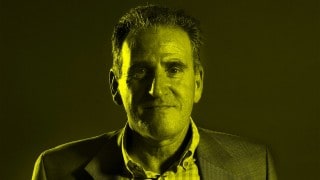Mark Perry: Here’s an amazing story of how a new technology has revolutionized the world and empowered individuals and transformed lives, especially in the developing countries. The simple cell phone has probably done more to reduce poverty globally and promote economic growth around the planet than all of the efforts of the World Bank.
The World Bank and infoDev released a study yesterday titled “Information and Communications for Development 2012: Maximizing Mobile,” here’s an excerpt from the press release:
“Around three-quarters of the world’s inhabitants now have access to a mobile phone and the mobile communications story is moving to a new level, which is not so much about the phone but how it is used. The number of mobile subscriptions in use worldwide, both pre-paid and post-paid, has grown from fewer than 1 billion in 2000 to over 6 billion now, of which nearly 5 billion in developing countries. Ownership of multiple subscriptions is becoming increasingly common, suggesting that their number will soon exceed that of the human population.”
Here’s an excerpt from the Executive Summary:
“With some 6 billion mobile subscriptions in use worldwide, around three-quarters of the world’s inhabitants now have access to a mobile phone. Mobiles are arguably the most ubiquitous modern technology: in some developing countries, more people have access to a mobile phone than to a bank account, electricity, or even clean water. Mobile communications now offer major opportunities to advance human development—from providing basic access to education or health information to making cash payments to stimulating citizen involvement in democratic processes.
The developing world is “more mobile” than the developed world. In the developed world, mobile communications have added value to legacy communication systems and have supplemented and expanded existing information flows. However, the developing world is following a different, “mobile first” development trajectory. Many mobile innovations—such as multi-SIM card phones, low-value recharges, and mobile payments—have originated in poorer countries and are spreading from there. New mobile applications that are designed locally and rooted in the realities of the developing world will be much better suited to addressing development challenges than applications transplanted from elsewhere. In particular, locally developed applications can address developing-country concerns such as digital literacy and affordability.
Mobile applications not only empower individual users, they enrich their lifestyles and livelihoods, and boost the economy as a whole. Indeed, mobile applications now make phones immensely powerful as portals to the online world. A new wave of “apps,” or smartphone applications, and “mashups” of services, driven by high-speed networks, social networking, online crowdsourcing, and innovation, is helping mobile phones transform the lives of people in developed and developing countries alike. The report finds that mobile applications not only empower individuals but have important cascade effects stimulating growth, entrepreneurship, and productivity throughout the economy as a whole. Mobile communications promise to do more than just give the developing world a voice. By unlocking the genie in the phone, they empower people to make their own choices and decisions.”
Here’s a website with links to the full study.









